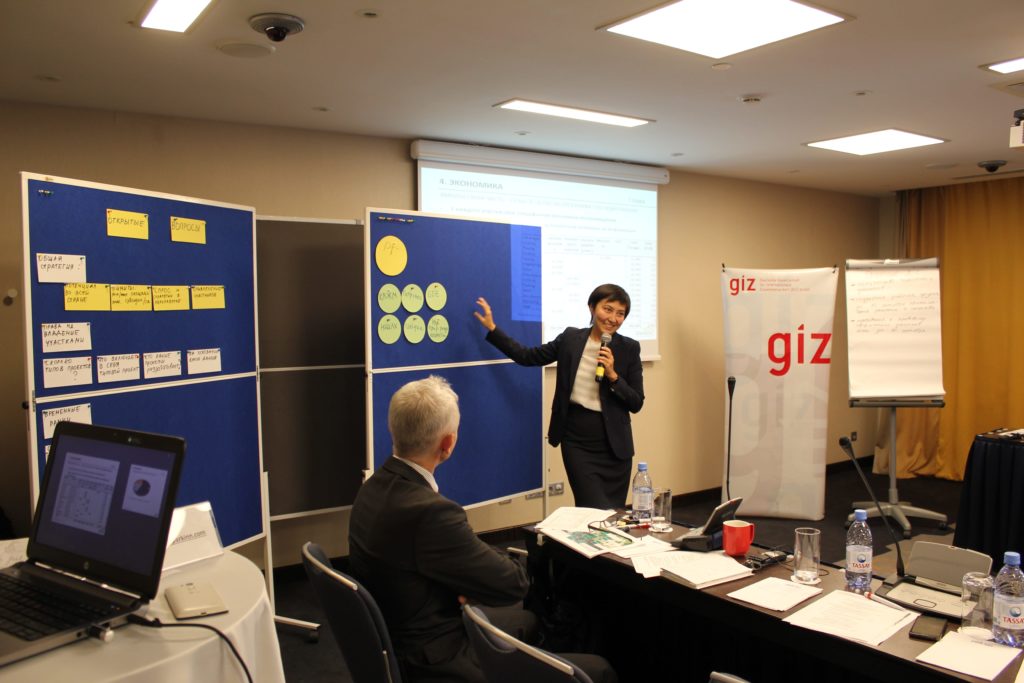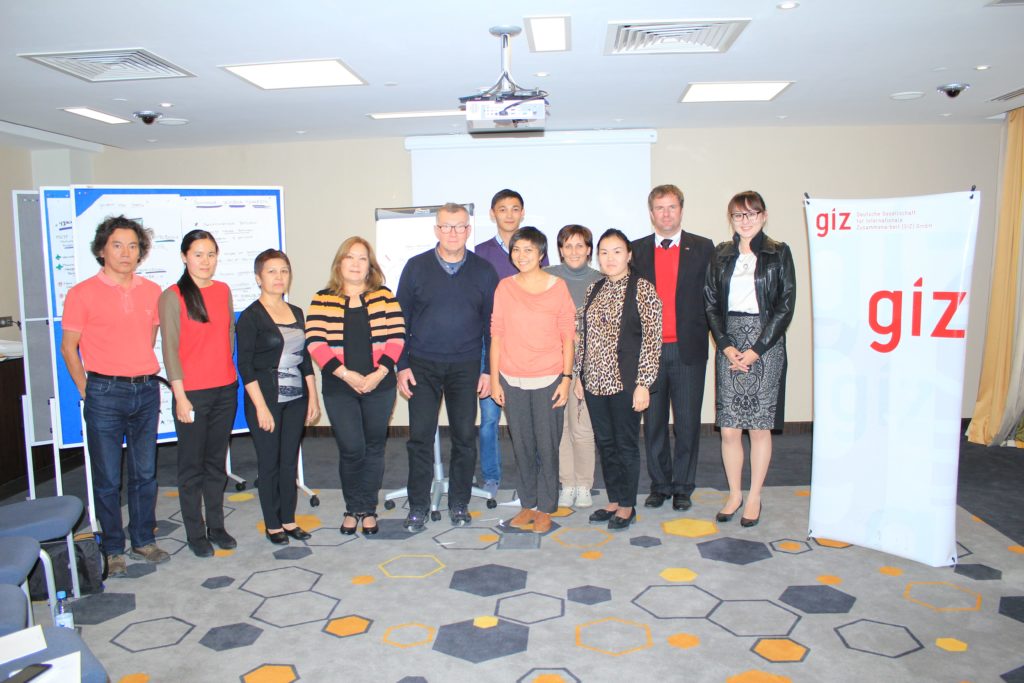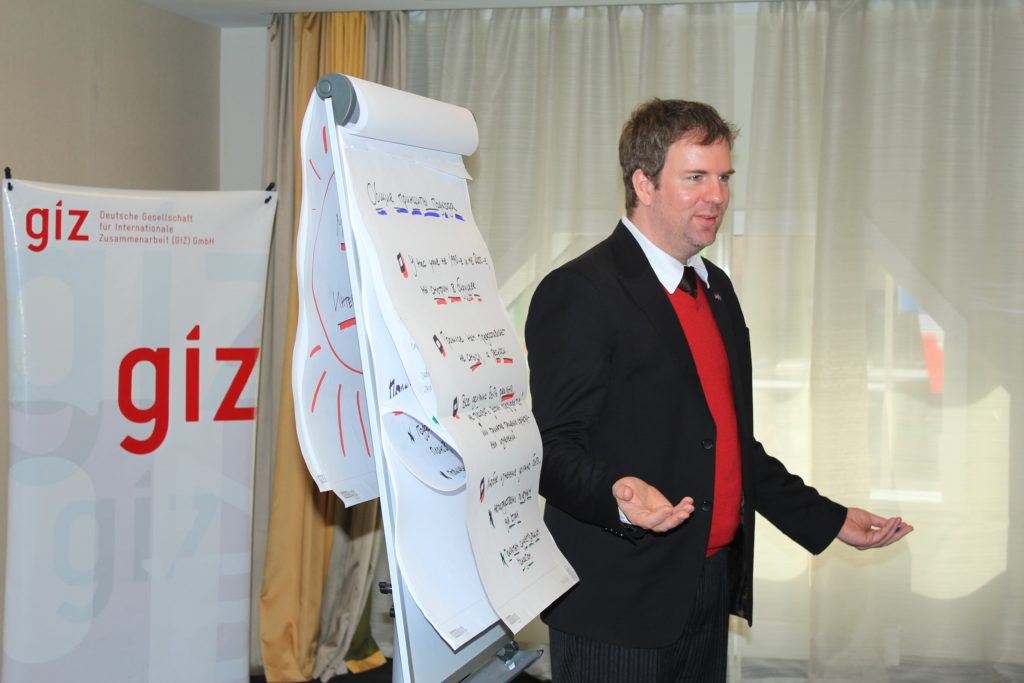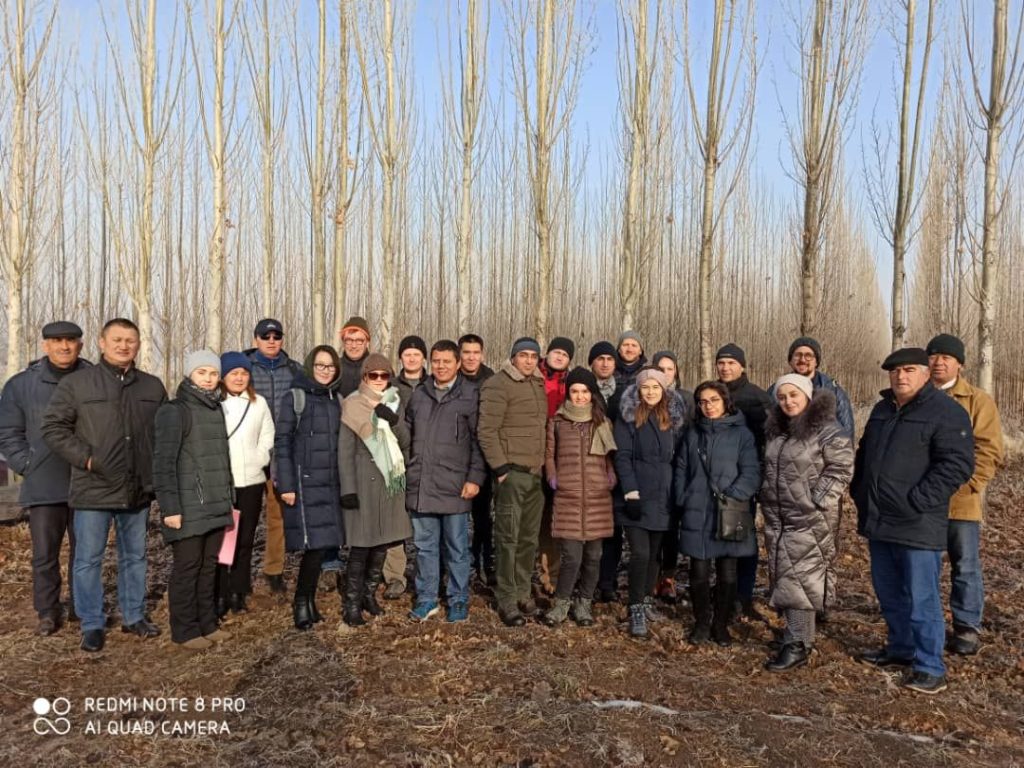The Kazakhstan’s developing economy stimulates the demand for wood products, while low forest cover (4.5%) encourages a careful attitude to forest resources. This explains why wood products are currently imported from abroad. At the same time, there are numerous possibilities to increase forest areas and improve the quality of wood.
One of them is private sector involvement. In accordance with the Forest Code [1, 6], individuals and non-government legal entities are entitled to establish and grow plantations for various purposes, create nurseries and forest stands.
In 2015, with the technical support of Deutsche Gesellschaft für Internationale Zusammenarbeit (GIZ) GmbH (German Federal Enterprise for International Cooperation), a feasibility study was carried out on measures for private afforestation. This resulted in a joint decision by GIZ and the Committee on Forestry and Wildlife (CFW) of the Ministry of Ecology, Geology and Natural Resources on a pilot project as the basis for developing an effective mechanism of state co-financing of private afforestation.
In 2016, fast-growing tree species were planted in (6) six small experimental sites in three regions of the country – Almaty, Akmola and Zhambyl. Along with monitoring and data collection, GIZ experts supported the development of a regulatory framework governing private investment in afforestation.
Based on relevant international experience and consultations with national stakeholders (top-down approach), the GIZ Regional Program supports the development of a common strategy and recommendations on the concept of private afforestation, including an effective state support program. Pilot activities in different regions of the country ensure the accumulation of practical experience and data (bottom-up approach).
The pilot phase revealed that the establishment of plantations of fast-growing tree species, such as poplar is feasible in different regions of Kazakhstan. The country has the necessary conditions in place for the successful implementation of such initiatives – the availability of land, suppliers capable of providing quality services with the necessary experience and expert knowledge, landowners who demonstrate interest in such initiatives and forest nurseries as suppliers of planting material.





